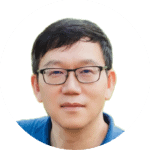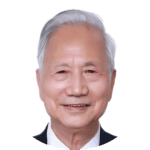Call it the DeepSeek shock. The Chinese company’s release of a new artificial intelligence model that is on par with its Western peers, yet produced at a fraction of the cost and with far less powerful chips, has upended assumptions about the U.S.’s lead over China in AI as well as the value of major companies from Nvidia on down.
The question now is: Could there be more where DeepSeek came from?
Even China watchers in the United States have been astonished by DeepSeek’s emergence. Yet its success is unlikely to prove a fluke; in fact, the Chinese AI ecosystem has grown rapidly in recent years, despite the U.S.’s efforts to crimp its advances by limiting the country’s access to high-end semiconductors and restricting outbound investment to China in the sector.
In this edition of Who’s Who, we identify the entrepreneurs, scientists and policy makers responsible for scaling and shaping China’s AI space, compiled from corporate documents, government statements, scholarly articles, and media reports. Those included range from the bosses of China’s leading AI start-ups, to those heading AI initiatives at incumbent tech goliaths like Tencent and Baidu, to the venture capitalists, academics, and government officials funding and designing the industry’s development.
Several trends stand out. Of the 52 people on the list, just two are women, revealing how male-dominated China’s AI landscape is. Four in five have PhDs, a contrast with the U.S., where several successful tech entrepreneurs, like Mark Zuckerberg and Sam Altman, are well-known college dropouts. Around half pursued graduate education in the West, while 16 have previously worked at Microsoft in some capacity in the United States or China; two have relinquished their U.S. citizenship. Where possible, we have included the ages of people on the list, which range from 26 to 89. People with a ‘🇨🇳’ next to their name are members of the Chinese Communist Party.
Meanwhile, of the 22 tech companies represented, eight are blacklisted in some form by the United States, reflecting Washington’s concerns about AI’s military potential and China’s use of advanced technology to repress Uyghurs and other minority groups in Xinjiang. Companies with a ‘⛔’ next to their name have been sanctioned by the United States. The United States has not sanctioned any of the individuals on this list, and just one of the ten state-backed research institutions that appear.
Read on for more information, or click the button below to download a PDF version of this page. The Wire is grateful to Rui Ma, Matt Sheehan, Helen Toner, and Jenny Xiao for their comments.




















































